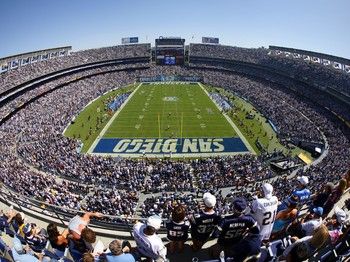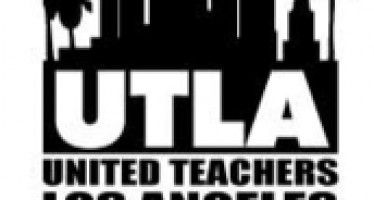NFL exec has mixed take on San Diego plan
 San Diego Mayor Kevin Faulconer, San Diego County Supervisor Ron Roberts and Assembly Speaker Toni Atkins, D-San Diego, told a senior NFL executive on Tuesday about the city’s plans to pay for and expedite the building of a new $1.2 billion-plus stadium for the Chargers at the Qualcomm site in Mission Valley. Afterwards, Faulconer’s press conference was upbeat, stressing his optimism that the Chargers will stay in town and not head for Carson and a shared stadium with the Raiders or Inglewood and a shared stadium with the Rams.
San Diego Mayor Kevin Faulconer, San Diego County Supervisor Ron Roberts and Assembly Speaker Toni Atkins, D-San Diego, told a senior NFL executive on Tuesday about the city’s plans to pay for and expedite the building of a new $1.2 billion-plus stadium for the Chargers at the Qualcomm site in Mission Valley. Afterwards, Faulconer’s press conference was upbeat, stressing his optimism that the Chargers will stay in town and not head for Carson and a shared stadium with the Raiders or Inglewood and a shared stadium with the Rams.
But the doubts that have been raised publicly and privately by the Spanos family — the owners of the Chargers — about the the city’s financing plans and expectations of quick environmental OKs appear to have sunk in with the NFL’s upper brass. The league’s executive vice president, Eric Grubman, had a good news-bad news reaction to the meeting with San Diego officials in an email to the Union-Tribune:
Grubman was also positive after the meeting … praising the city for its large team of environmental experts and for giving the NFL a thorough understanding of its accelerated timeline for environmental approvals and a January public vote.
Grubman also said the city’s proposed stadium design has “all the key elements we would expect at this stage.”
But he stressed that the design was only conceptual, no actual negotiations took place on Tuesday and that the financing plan presented by the city includes “very significant funding from NFL and Chargers sources.”
That was a reference to the $400 million to $500 million that the team and the league are expected to kick in for construction and related costs.
Is a mostly subsidized stadium not good enough?
Grubman’s critique prompted a sharp response on social media from some who wondered how the world’s most lucrative professional sports league could gripe about a proposal in which taxpayers bore two-thirds or so of the cost of a stadium for the league.
But as an indication of how NFL Commissioner Roger Goodell and other team owners felt about the Chargers’ interest in moving, it was telling. Past assumptions about the league not wanting to risk a backlash over a moneymaking team leaving a community that had supported it for more than a half-century may have been based on a sentimental view about how the NFL operates.
So where do things go from here? The Union-Tribune’s coverage suggests a meeting in less that two weeks could be absolutely crucial:
[San Diego officials will make] a presentation scheduled for Aug. 10 in Chicago to the NFL’s relocation committee — a group of six team owners overseeing possible franchise moves to Los Angeles.
The day after that presentation, all 32 NFL owners are scheduled to meet in Chicago to discuss how to handle relocations to the Los Angeles area, where the Chargers, Oakland Raiders and St. Louis Rams are working on stadium projects.
How — and how much — does Atkins want to help?
The fact that the San Diego political establishment is not united on the stadium issue came up again Tuesday. The involvement of Atkins in the meeting with Grubman was treated as a huge plus by Mayor Faulconer, but her decision not to join him at the press conference and the vagueness of her confirmed comments led editors of the Voice of San Diego to wonder what help she was actually providing.
On Twitter, VOSD’s Liam Dillon paraphrased her position this way: “Atkins: I’m happy to expedite the mayor’s Chargers plan, but I don’t have a position on the mayor’s Chargers plan.”
An aide to Atkins said she was ready to help the city and the team maneuver through the obstacle course of state environmental rules in building the stadium. But the City Council member whom Atkins appears closest to — former interim Mayor Todd Gloria — is very cool to Faulconer’s stadium push.
So how much Atkins actually wants to do to help keep the Chargers in San Diego is open to question. For now, city Republican leaders appear far more inclined than elected city Democrats to subsidize a Chargers stadium, wherever it is located and however the taxpayers’ share of costs is provided.
Chris Reed
Chris Reed is a regular contributor to Cal Watchdog. Reed is an editorial writer for U-T San Diego. Before joining the U-T in July 2005, he was the opinion-page columns editor and wrote the featured weekly Unspin column for The Orange County Register. Reed was on the national board of the Association of Opinion Page Editors from 2003-2005. From 2000 to 2005, Reed made more than 100 appearances as a featured news analyst on Los Angeles-area National Public Radio affiliate KPCC-FM. From 1990 to 1998, Reed was an editor, metro columnist and film critic at the Inland Valley Daily Bulletin in Ontario. Reed has a political science degree from the University of Hawaii (Hilo campus), where he edited the student newspaper, the Vulcan News, his senior year. He is on Twitter: @chrisreed99.
Related Articles
Teachers want LAUSD to ignore state law, 2012 ruling
The United Teachers Los Angeles held a large rally Thursday showing strong rank-and-file support for the union’s demands that the
Study: California worst-run state
Dec. 1, 2012 By John Seiler 247 Wall Street once again ranked California as the worst-run state in the (increasingly
Californians like sprawl far more than ‘smart growth’
June 25, 2013 By Chris Reed California’s official embrace of trendy “smart growth” — the policy/religion that assumes it’s best



